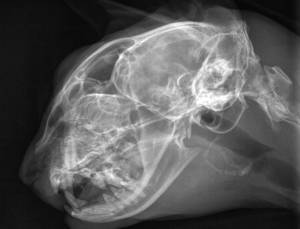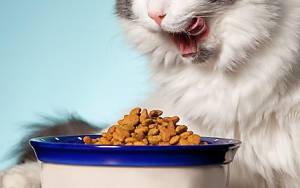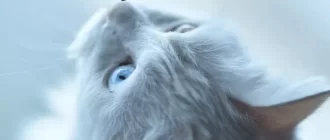So whether you’re a concerned pet parent or simply curious about feline behavior, keep reading to learn more about this peculiar phenomenon.
What is cat head bobbing and why does it happen?
Cat head twitching/bobbing refers to a rhythmic back and forth movement of a cat’s head. It can be a normal behavior in certain situations, but it can also indicate underlying health issues. There are a few reasons why cat head bobbing happens:
- Hunting behavior: Cats have a natural instinct to stalk and pounce on prey. Head bobbing can be a sign that your cat is mimicking the movement of prey, preparing to strike.
- Playful behavior: Cats love to play and may exhibit head bobbing when they are engaged in interactive play sessions. It’s their way of showing excitement and anticipation.
- Marking territory: Cats have scent glands located on their cheeks, and head bobbing can be a way for them to mark their territory by rubbing their scent on objects.
- Stress or anxiety: Cats may bob their heads as a way to cope with stressful situations or to calm themselves down. This behavior can also be observed during times of change or when they feel threatened.
- Medical conditions: In some cases, head bobbing may be a sign of an underlying medical condition, such as an ear infection or neurological issue. If your cat’s head bobbing is accompanied by other concerning symptoms, it’s important to consult with a veterinarian.

Remember, every cat is different, and their head bobbing behavior may vary. If you’re unsure about the cause of your cat’s head bobbing or if it’s causing distress, it’s always a good idea to seek advice from a veterinary professional.
How to treat cat head bobbing
If you notice your cat displaying head bobbing behavior, there are a few steps you can take to address the issue:
- Observe your cat: Monitor your cat’s behavior and note any accompanying symptoms. Documenting the frequency and duration of the head bobbing can provide valuable information for your veterinarian.
- Schedule a veterinary appointment: It’s essential to consult with a veterinarian to determine the underlying cause of the head nodding or bobbing. They will perform a physical examination, review your cat’s medical history, and may recommend additional tests or imaging to help with the diagnosis.
- Treat the underlying condition: The treatment for cat head bobbing will depend on the underlying cause. Your veterinarian may prescribe medications to address any neurological issues or recommend specific treatments for other medical conditions.
- Provide a stress-free environment: Creating a calm and relaxing environment for your cat can help alleviate any anxiety or stress that may be contributing to the head bobbing. Ensure your cat has access to a comfortable space and provide enrichment activities to keep their mind stimulated.
- Follow-up with your veterinarian: Regular check-ups with your veterinarian are essential to monitor your cat’s progress and make any necessary adjustments to their treatment plan.
When to seek veterinary care for cat head bobbing
While occasional head bobbing in cats is usually harmless and not a cause for concern, there are instances when it may be necessary to seek veterinary care. If your cat’s head bobbing is persistent, severe, or accompanied by other concerning symptoms, it is advised to consult a veterinarian. These symptoms may include:
- Loss of balance or coordination: If your cat is having difficulty walking, stumbling, or falling over, it could indicate a more serious underlying condition.
- Disorientation or confusion: If your cat appears disoriented, disoriented, or has a change in behavior, it could be a sign of an underlying neurological problem.
- Vocalization or pain: If your cat is in obvious pain, crying out, or showing signs of distress, it may require immediate medical attention.
- Other physical abnormalities: If you notice any other abnormal physical symptoms, such as weakness in the limbs, seizures, or paralysis, it is crucial to seek veterinary care.
It is always better to err on the side of caution and have a professional evaluate your cat’s condition to rule out any serious medical issues.
Conclusion
Cat head bobbing can be caused by various factors, including medical conditions, behavioral issues, or simply normal feline behavior. It’s important to observe your cat’s head bobbing and try to identify any underlying causes.
If your cat’s head bobbing is accompanied by other concerning symptoms such as loss of appetite, lethargy, or difficulty walking, it’s recommended to seek veterinary care. A thorough examination and diagnostic tests can help determine the cause and appropriate treatment.
Tips for Prevention
While some causes of cat head bobbing may be preventable, others may not be. However, there are a few general tips that can help keep your cat healthy and reduce the likelihood of head bobbing:
- Regular veterinary check-ups: Routine check-ups can help identify any potential health issues before they become serious.
- Proper nutrition: Providing a balanced and nutritious diet can support your cat’s overall health and well-being.
- Environmental enrichment: Ensuring your cat has plenty of mental and physical stimulation can help prevent behavioral issues that may contribute to head bobbing.
- Stress reduction: Creating a calm and stress-free environment can help reduce the likelihood of behavioral problems.
By following these tips and staying attentive to your cat’s behavior, you can help keep them healthy and minimize the risk of head bobbing, twitching or other health issues. Remember to consult with your veterinarian if you have any concerns about your cat’s well-being.





